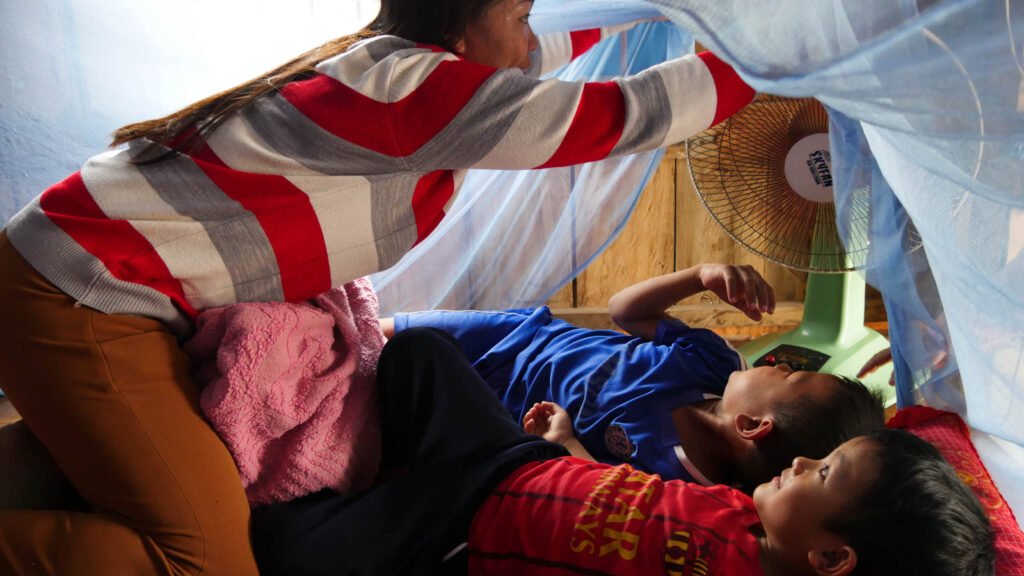The Trump administration’s decision to permit the resumption of global health initiatives is a welcome relief for programs targeting diseases like malaria and tuberculosis. In a memo dated Tuesday, USAID official Nicholas Enrich outlined steps to resume or continue activities deemed to be lifesaving humanitarian assistance.
However, the timeline for the funds to start flowing again remains unclear. The U.S. support for these health initiatives is channeled through USAID, which has been facing staff cuts and recalls of personnel working abroad. This has raised concerns about the efficiency and speed at which the programs can restart.
One of the key initiatives affected by the foreign aid freeze was the President’s Emergency Plan for AIDS Relief (PEPFAR). While a waiver has been granted to allow some of its work to resume, reports indicate that some groups are still not receiving funding.
The memo from USAID also highlighted the need to restart services addressing childhood and maternal mortality, as well as programs focused on preventing and treating malaria and tuberculosis. Emergency responses to infectious disease outbreaks, such as smallpox and Ebola, are also set to resume.
The waiver allowing the resumption of malaria programs has been met with approval from organizations like Malaria No More. CEO Martin Edlund emphasized the importance of getting malaria medicines to those in need, particularly young children and pregnant women in sub-Saharan Africa.
The halt in foreign aid and the subsequent stop-work order issued by the Trump administration had put many health programs at risk. Organizations were unable to distribute U.S.-supported medicines or bed nets, leading to concerns about the impact on disease control efforts.
The revival of these health initiatives is crucial, especially in the case of malaria, where the U.S. has been a significant contributor to global funding. Malaria remains a major public health concern, causing hundreds of thousands of deaths each year, mostly in sub-Saharan Africa.
Research has shown that even a brief pause in malaria control efforts can result in a surge of infections, particularly in regions with seasonal transmission of the parasite. The freeze on funding was estimated to prevent the delivery of millions of doses of medicines, bed nets, diagnostic tests, and preventative drugs, putting vulnerable populations at risk.
As the funding resumes and programs restart, aid groups and health experts are hopeful that progress can be maintained in the fight against malaria. With new tools like malaria vaccines becoming available, there is optimism that the most vulnerable populations can be protected from this deadly disease. The global health community will now be closely monitoring the implementation of the resumption of these vital health initiatives. The recent turmoil at USAID has left many organizations uncertain about the future of their operations. With some groups laying off staff and a lack of clarity on how this will impact the procurement and delivery of supplies, there is a fear that the infrastructure built up over the past 20 years could be on the brink of collapse.
Dr. Nahlen, a key figure in the field, expressed concerns about the potential challenges ahead. He mentioned that even if things were to suddenly come back online after the 90-day review, rebuilding what has been lost will not be an easy task. The waiver announcement only added to the uncertainty, leaving many wondering what the next steps will be.
The impact of these developments on the ability of organizations to continue their work is significant. Without a stable and functioning system in place, the delivery of essential supplies to those in need could be severely compromised. The potential consequences of this could be disastrous, especially in regions where access to healthcare and other critical services is already limited.
As we navigate through these uncertain times, it is crucial for organizations to come together and find ways to overcome the challenges that lie ahead. Collaboration, innovation, and resilience will be key to ensuring that the progress made over the years is not lost. By working together and adapting to the changing landscape, we can hopefully prevent the infrastructure from crumbling and continue to provide much-needed support to those who rely on our services.
In conclusion, the road ahead may be challenging, but with determination and a collective effort, we can weather the storm and emerge stronger on the other side. It is imperative that we remain vigilant and proactive in addressing the issues at hand, so that we can continue to make a positive impact on the lives of those we serve.


